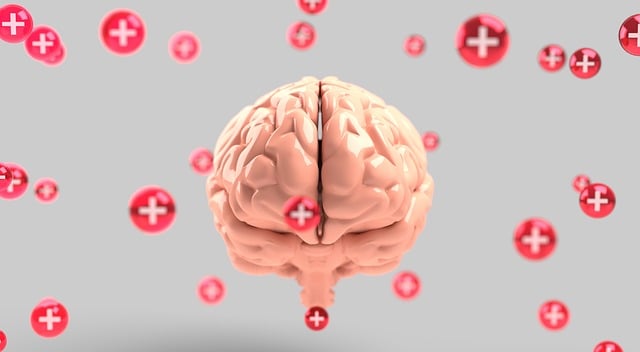Littleton Gambling Therapy offers an effective approach to enhance mental well-being through positive thinking techniques. By cultivating optimism, gratitude, and constructive self-talk, individuals can improve emotional regulation and reduce stress. Tailored exercises like mindfulness meditation, affirmations, and gratitude journaling are practical tools accessible to everyone. Therapists should guide clients in using these strategies, as demonstrated by cognitive behavioral techniques, to build resilience and achieve long-term mental health benefits. Tracking progress is crucial for success, allowing individuals to recognize improvements and maintain momentum in their positive thinking journey.
Positive thinking is a powerful tool for enhancing mental well-being. This article explores the implementation of positive thinking exercises, highlighting their significant impact on mental health. We delve into the role of Littleton Gambling Therapy as an innovative approach to cultivating optimism. By understanding these concepts, individuals and therapists can design and execute effective exercises, leading to measurable improvements in overall mental wellness.
- Understanding Positive Thinking and its Impact on Mental Health
- The Role of Littleton Gambling Therapy in Promoting Positive Thinking
- Designing Effective Positive Thinking Exercises
- Implementing the Exercises: Tips for Therapists and Individuals
- Measuring Success and Tracking Progress in Positive Thinking Transformation
Understanding Positive Thinking and its Impact on Mental Health

Positive thinking is a powerful tool that can significantly influence mental health and overall well-being. At its core, it involves cultivating a mindset focused on optimism, gratitude, and constructive self-talk. This shift in perspective can lead to profound changes in an individual’s emotional state and behaviors. Research has shown that positive thinking exercises reduce stress levels, enhance resilience, and promote better coping mechanisms. For instance, the principles of Mind Over Matter can empower individuals to reframe challenges as opportunities, fostering a sense of control and empowerment.
In the context of mental health treatment, Littleton Gambling Therapy offers various techniques to nurture positive thinking. Their Stress Management Workshops Organization provides structured programs that teach participants effective conflict resolution techniques, helping them navigate difficult situations with a calmer and more optimistic mindset. By integrating these practices into daily routines, individuals can experience improved emotional regulation and overall mental fortitude.
The Role of Littleton Gambling Therapy in Promoting Positive Thinking

Littleton Gambling Therapy offers a unique and effective approach to promoting positive thinking and improving mental well-being. Through carefully designed exercises and strategies, this therapeutic method helps individuals challenge negative thought patterns and replace them with more constructive and optimistic ones. By focusing on reframing thoughts and behaviors, it empowers people to gain a new perspective, fostering a sense of hope and resilience. This is particularly beneficial for those experiencing burnout, as it provides tools to manage stress and prevent the onset of further mental health issues.
Incorporating Littleton Gambling Therapy into one’s self-care routine can be transformative. It encourages individuals to engage in activities that enhance mood management, such as mindfulness exercises and cognitive reframing techniques. These practices not only help in the immediate relief of symptoms but also contribute to long-term mental health by fostering a positive mindset. Ultimately, it aids in the development of a robust self-care routine, enabling better coping mechanisms for everyday challenges, thus ensuring optimal mental health and well-being.
Designing Effective Positive Thinking Exercises

Designing effective positive thinking exercises is a multifaceted process that involves tailoring activities to individual needs and preferences. At the core, these exercises should foster self-awareness, a key component in mental wellness coaching programs development. Incorporating practices like mindfulness meditation can significantly enhance this process, enabling individuals to cultivate a more optimistic outlook. For instance, simple daily affirmations or gratitude journaling can help redirect thoughts towards positive aspects of life, much like Littleton Gambling Therapy sessions that focus on cognitive behavioral techniques.
The effectiveness of these exercises also hinges on their accessibility and practicality. Incorporating self-awareness exercises into one’s routine doesn’t have to be complex; a brief moment each day dedicated to reflecting on personal strengths and accomplishments can make a profound difference. By combining these strategies with regular practice, individuals can build resilience and improve their overall mental wellness, ultimately leading to more fulfilling lives.
Implementing the Exercises: Tips for Therapists and Individuals

Implementing positive thinking exercises can be a powerful tool for both therapists and individuals seeking to enhance mental wellness. At Littleton Gambling Therapy, we emphasize the importance of these practices in fostering meaningful change. Therapists should begin by selecting exercises that align with their clients’ unique needs and goals. Personalizing each session allows for more effective engagement and better results. For instance, a therapist might incorporate mindfulness techniques for clients dealing with anxiety or use visualization exercises to help individuals set and achieve personal objectives.
Incorporating these strategies requires patience and flexibility. It’s crucial to provide clear instructions and offer support throughout the process. Crisis intervention guidance can be beneficial when navigating challenging emotions or thoughts. Additionally, regular practice is essential to reinforce positive thinking patterns. Consider creating a structured routine where individuals dedicate time daily or weekly to engage in these exercises. The Mind Over Matter Principles, popularized through our Mental Wellness Podcast Series Production, serve as a guiding framework for this continuous growth and self-improvement journey.
Measuring Success and Tracking Progress in Positive Thinking Transformation

Measuring success and tracking progress are essential components of any positive thinking transformation journey. This process allows individuals to recognize their achievements, adjust strategies, and maintain momentum. In the context of Littleton Gambling Therapy, for instance, clients can measure success by evaluating reductions in gambling-related stress and anxiety, as well as improvements in overall mental health. Regularly tracking progress helps them stay on course, identify areas that require further attention, and celebrate milestones achieved along the way.
Effective tracking involves setting clear goals aligned with desired outcomes, such as improved self-awareness, better coping mechanisms, and enhanced stress management skills. This can be done through various methods, including journaling, mood trackers, or utilizing dedicated mental health apps designed to support anxiety relief and promote healthy habits. By regularly assessing progress, individuals gain valuable insights into their positive thinking exercises’ effectiveness, fostering a sense of accomplishment and encouraging continued engagement in their mental health education programs design.
The implementation of positive thinking exercises, with guidance from therapists or as a personal practice, offers a powerful tool for enhancing mental well-being. As discussed, understanding the science behind positive thinking and utilizing evidence-based methods like Littleton Gambling Therapy can significantly impact an individual’s outlook and overall life satisfaction. By designing tailored exercises and consistently tracking progress, people can cultivate resilience, reduce stress, and foster a more optimistic mindset. This transformative journey is accessible to all, encouraging folks to embrace the benefits of positive thinking for improved mental health and a happier, more fulfilling life.














